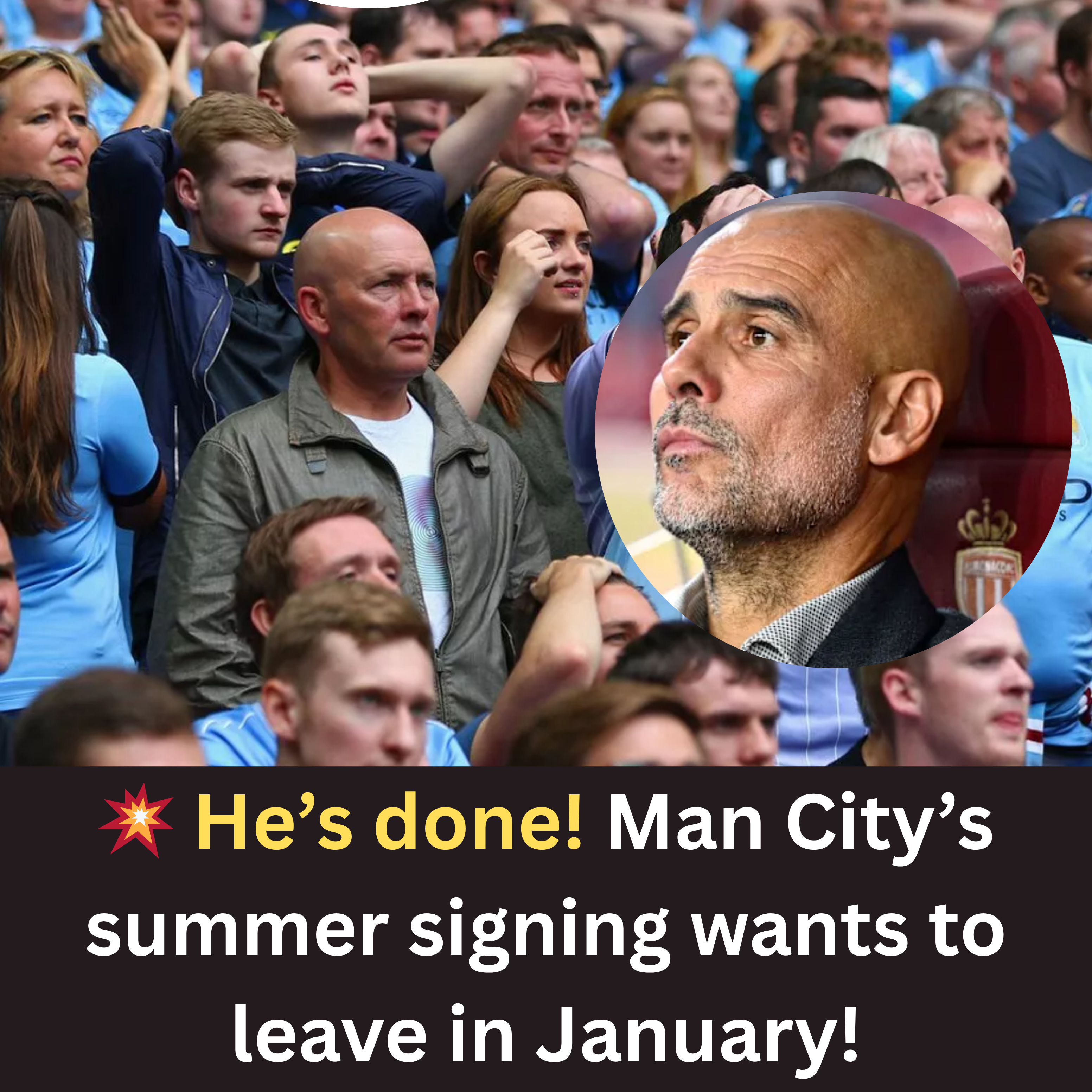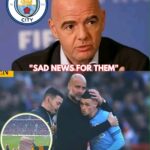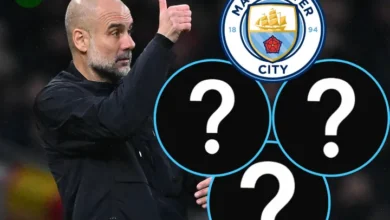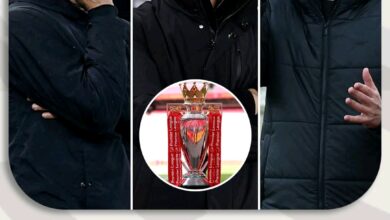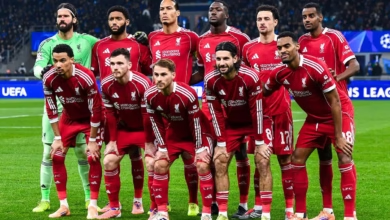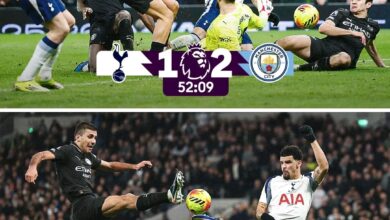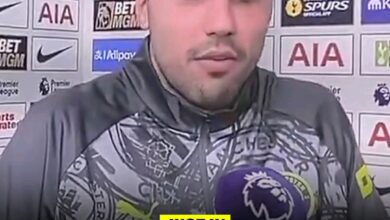Police ‘launch investigation’ after Jack Grealish incident at Manchester derby amid vile Phil Foden chants

In the wake of a tense Manchester derby that ended in a 0-0 draw, an alleged incident involving Manchester City’s Jack Grealish has drawn police attention and sparked widespread controversy. The encounter, which took place at Old Trafford on Sunday, April 6, 2025, saw Greater Manchester Police launch an investigation after reports of an assault on Grealish, who was walking off the pitch after the final whistle. Alongside the alleged assault, the match was marred by explicit chants directed at City star Phil Foden by a section of Manchester United fans, further escalating tensions between the two clubs.
According to reports, the incident involving Grealish occurred shortly after the full-time whistle of the match. With both teams failing to find the back of the net, the game concluded with a 0-0 scoreline, disappointing fans of both clubs who had hoped for a more exciting encounter. Grealish, who had come on as a substitute in the 74th minute, was seen making his way back toward the tunnel when an alleged assault occurred.
Eyewitnesses and initial reports suggest that a Manchester United supporter physically confronted Grealish as he walked off the pitch, allegedly slapping the player. Though the incident was unsettling, it is believed that Grealish was not seriously injured. In response to the attack, Greater Manchester Police moved swiftly, confirming that they had arrested and charged a man in connection with the alleged assault.
A statement from the police revealed that the accused, Alfie Holt, a 20-year-old man from Droylsden, was charged with assault. Holt is scheduled to appear in Manchester Magistrates Court to answer to the charges. The police’s prompt action and the subsequent charge have signaled the seriousness with which the authorities are taking this case. Manchester United and Manchester City have both declined to make public comments on the ongoing investigation, maintaining a neutral stance while the legal process unfolds.
The incident came at a time when emotions were already running high in the aftermath of the highly anticipated Manchester derby. The match, which was billed as a key fixture in the Premier League calendar, saw neither team manage to make a significant impact in front of goal. Both Manchester United and Manchester City struggled to create clear-cut chances, with City’s star-studded attack failing to break down United’s defense, and United’s own forwards lacking the necessary sharpness to put City under real pressure.
Grealish’s substitution in the 74th minute was one of the few notable moments in an otherwise uneventful match. As a player known for his flair and ability to spark creativity, Grealish’s presence on the field was expected to add some excitement, but the match ended in a dour stalemate. Despite the lack of action on the pitch, the atmosphere in the stands remained intense, as is typical for any encounter between two of the Premier League’s biggest rivals.
As Grealish made his way back to the tunnel, tensions within the stadium appeared to have boiled over. The alleged slap was a reminder of the sometimes volatile nature of football rivalries, where passions can run so high that they spill over into unacceptable behavior.
### Disturbing Chants Aimed at Phil Foden
The controversy surrounding the Grealish incident was compounded by another unsavory episode that occurred earlier in the match. During the game, a section of Manchester United fans directed explicit and highly offensive chants at Manchester City’s Phil Foden. The chants, which referenced Foden’s mother in a deeply disrespectful manner, were quickly condemned by both fans and officials alike.
Foden, who had been substituted in the second half, was the subject of the offensive chants, which focused on personal and inappropriate aspects of his life. While football rivalries often involve banter and taunts, the nature of these chants crossed a line, drawing widespread condemnation from across the football community. City manager Pep Guardiola was among the first to speak out, voicing his outrage at the behavior of a minority of United fans.
In a post-match interview, Guardiola described the chants as a “lack of class” and expressed his bewilderment over why some individuals would choose to target Foden’s family in such a manner. Guardiola added that it was not representative of Manchester United as a club but rather of certain individuals who had shown a “lack of integrity” and “class.” His comments reflected the growing concern over the toxicity of some elements within the fanbase, which can sometimes spill into unacceptable behavior both in the stadium and online.
The offensive chants were widely condemned across social media, with fans from both Manchester City and Manchester United voicing their disgust at the comments. Many football supporters took to platforms like Twitter to express their disapproval of the behavior, calling for greater efforts to tackle abuse in football and ensure that such incidents are not tolerated.
In the aftermath of the chants, the Football Association (FA) released a statement condemning the offensive language used by the fans but indicated that no disciplinary action would be taken against Manchester United. The FA explained that while they were “aware” of the situation and condemned the behavior, they did not believe the chants violated any specific regulations that would warrant further action.
This decision has sparked some debate within the football community, with many questioning whether the FA should have taken a stronger stance. Some critics argue that by not imposing sanctions, the governing body is sending the wrong message to fans, allowing toxic behavior to continue unchecked. However, others believe that it is important for football authorities to focus on creating long-term strategies to tackle abuse and discrimination, rather than relying on reactive measures.
While the FA has refrained from taking any immediate action, Manchester United and Manchester City have both faced increased scrutiny over the incident. Many are calling for both clubs to work together to address the issue and ensure that their fans are held accountable for their actions.
The events of the Manchester derby have brought the issue of fan behavior back into the spotlight. While football has long been a sport with passionate and often boisterous fans, there is growing concern over the rise in abusive behavior in the stands. The actions of a small minority of fans during the derby are not isolated incidents; they are part of a wider trend of increasing toxicity and hostility in football stadiums across the world.
In recent years, there has been a heightened focus on tackling issues such as racism, homophobia, and misogyny within football fanbases. Clubs and governing bodies have taken steps to address these issues through campaigns, education, and stricter sanctions for those found guilty of discriminatory behavior. However, incidents like the one involving Foden’s mother demonstrate that there is still much work to be done.
The problem of fan abuse is not limited to one club or country. Across Europe and beyond, fans have been known to cross the line in their rivalry-driven chants, often resorting to personal attacks that have no place in the game. The challenge for football authorities is how to balance the passion and rivalry that are intrinsic to the sport with the need to create a safe and respectful environment for players, coaches, and supporters alike.
As the investigation into the assault on Grealish continues, and the fallout from the offensive chants aimed at Foden plays out, there is a growing sense that football needs to take more decisive action to tackle the issue of fan behavior. While the majority of fans behave responsibly, the actions of a small minority can tarnish the reputation of the sport and undermine its positive qualities.
Both Manchester United and Manchester City have an important role to play in setting the tone for their respective fanbases. The clubs must continue to emphasize the importance of respect, sportsmanship, and inclusivity in their interactions with supporters. The FA, meanwhile, needs to consider whether their current approach to fan behavior is sufficient or if stronger measures are needed to ensure that football remains a safe and enjoyable environment for everyone involved.
The events of the Manchester derby serve as a stark reminder that the beautiful game is not immune to the darker sides of human nature. As the investigation unfolds, it is hoped that the authorities will send a clear message that such behavior has no place in football and that all players, managers, and fans deserve to be treated with dignity and respect.
The Manchester derby on April 6, 2025, will be remembered not just for the goalless draw but for the disturbing incidents that occurred off the pitch. The alleged assault on Jack Grealish and the explicit chants aimed at Phil Foden serve as stark reminders of the challenges facing football today. As the investigation into these incidents continues, it is clear that more must be done to address fan behavior and ensure that football remains a sport where respect, integrity, and class are upheld. The actions of a small few should not overshadow the passion and positivity that define the beautiful game.


